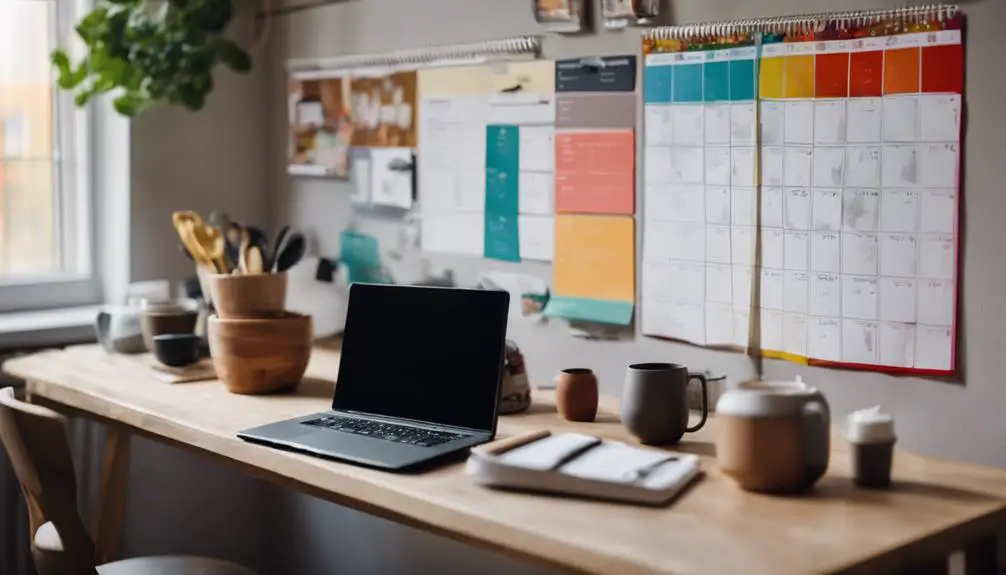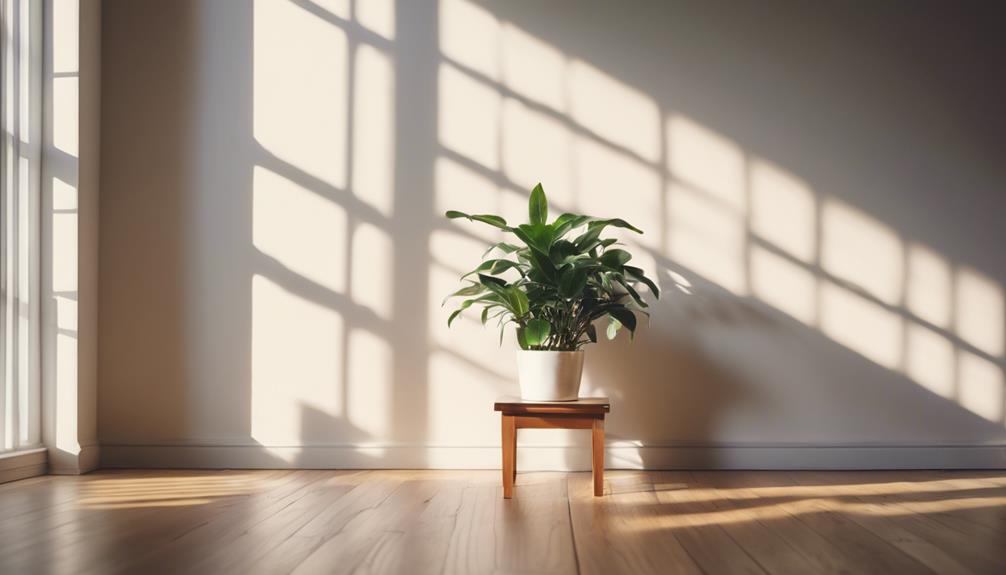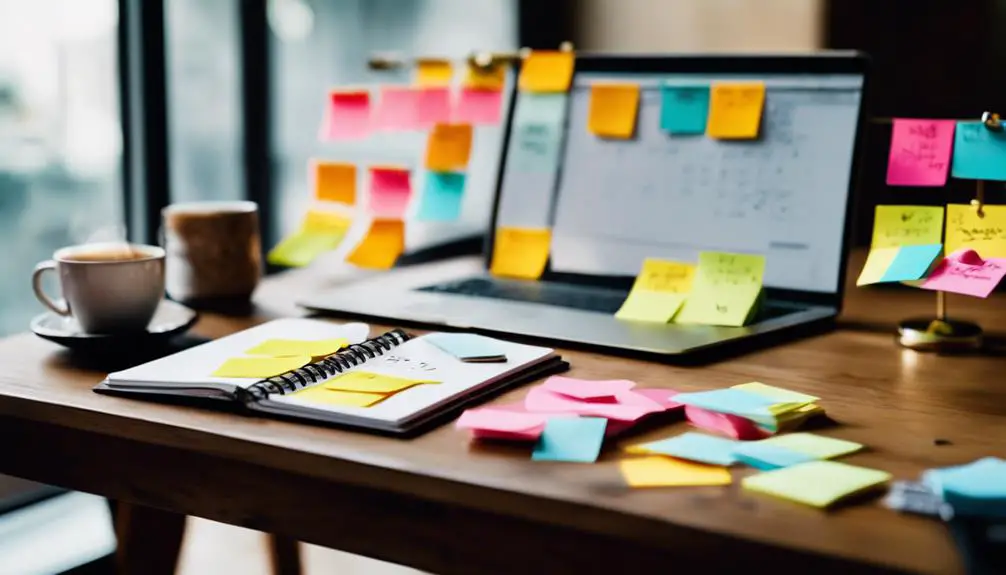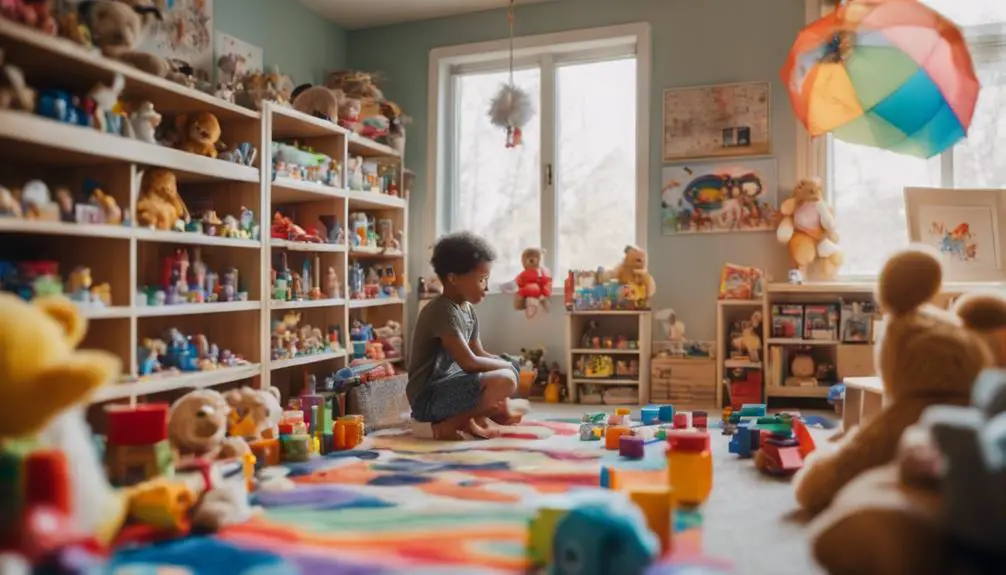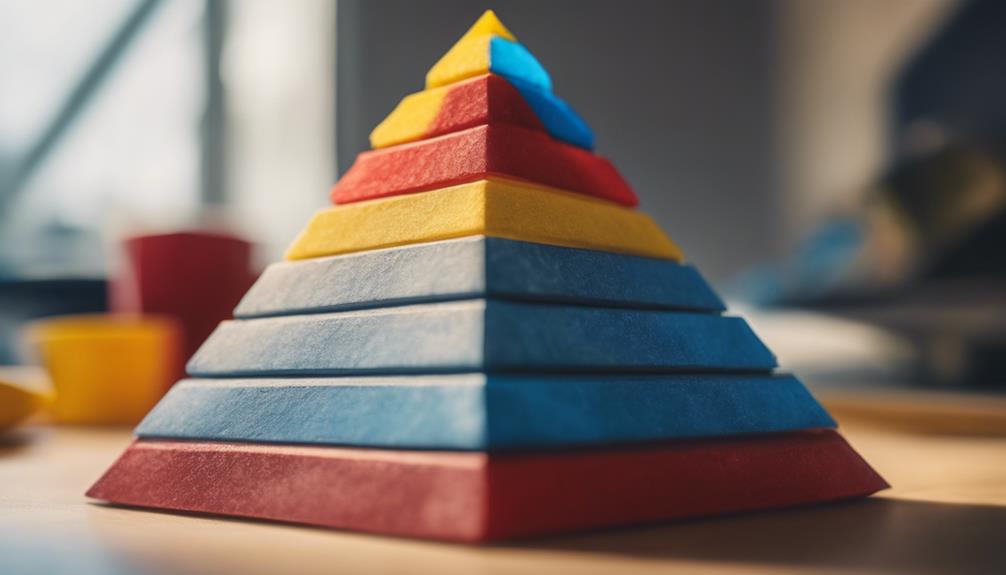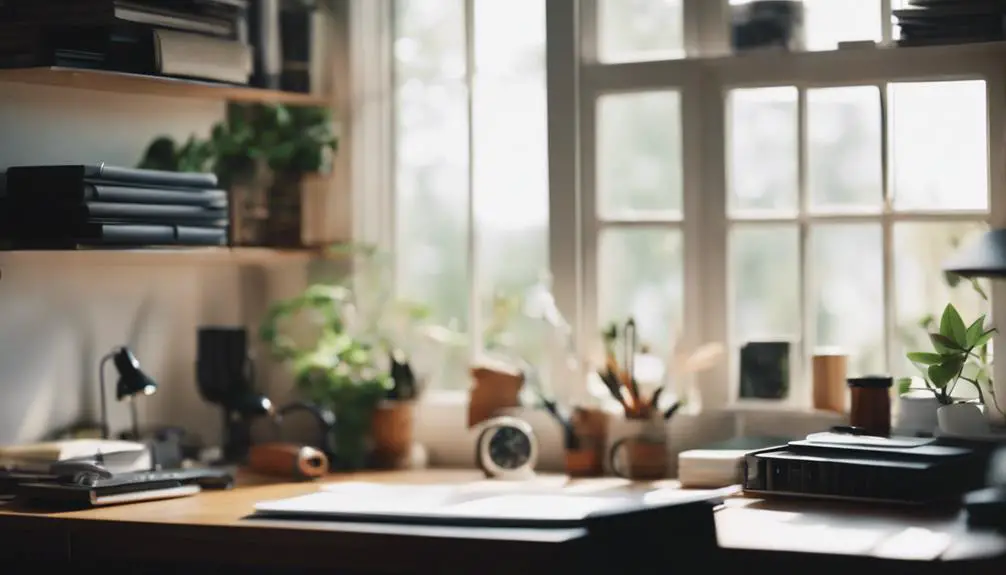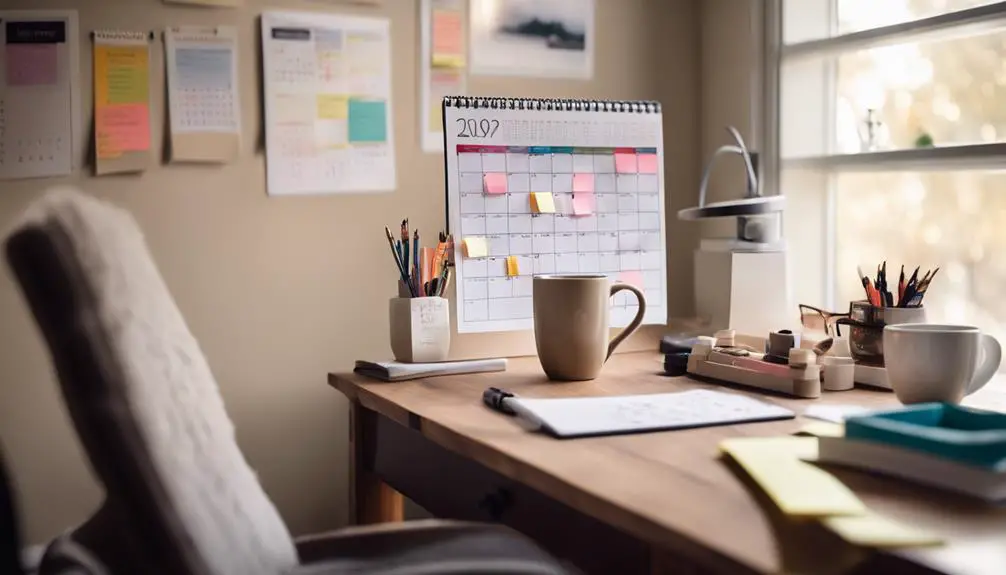When considering minimalism, it is essential to understand that it extends beyond merely discarding items. This lifestyle invites individuals to reflect on their values and identify what genuinely holds significance in their lives. By reducing not only physical clutter but also mental distractions, minimalism can enhance both mental clarity and emotional well-being.
Embracing a simpler life brings greater fulfillment through the complex connection between our belongings and our identity. Minimalism encourages individuals to reassess their relationship with material possessions. For instance, instead of accumulating items that may only serve a fleeting purpose, one might choose to keep only those that bring joy or serve a meaningful function.
This shift in perspective fosters a deeper appreciation for what truly matters, allowing for a more intentional way of living. The psychological benefits of minimalism are profound. A clutter-free environment can lead to decreased anxiety and stress, promoting a sense of calm and order.
For example, a well-organized living space can improve focus and productivity, making it easier to engage in creative or professional endeavors. Additionally, fewer possessions can lead to less time spent on maintenance and decision-making, freeing up time for more fulfilling activities.
Overall, adopting a minimalist approach not only transforms physical spaces but also enriches emotional and mental landscapes, ultimately paving the way for a more purposeful and satisfying life.
Understanding Minimalism
Minimalism transcends the notion of merely possessing fewer items; it embodies a mindset that directs your attention toward what’s genuinely significant. Adopting minimalism involves aligning your lifestyle decisions with your core values, liberating yourself from the burdens of consumerism and its pervasive cultural pressures.
This philosophy champions simplicity in aesthetics, allowing you to convey your identity unencumbered by the chaos that often results in sensory overload. Intentional living is a key practice in minimalism, where you thoughtfully decide what remains in your life, whether that be physical items or digital assets.
Digital minimalism is particularly impactful, enabling you to manage your time and resources more efficiently. This approach fosters financial independence, enhancing your environment and transforming it into a sanctuary that mirrors your authentic self.
As you release emotional bonds to material possessions, a sense of freedom emerges. Embracing sustainable living becomes a logical progression in your minimalist journey, emphasizing meaningful experiences over fleeting items.
Ultimately, grasping the essence of minimalism equips you to utilize your resources judiciously, cultivating a life that isn’t just simpler but also richer in quality and significance. With this perspective, you reclaim your time and energy, paving the way toward genuine freedom.
The Cognitive Load Theory
Grasping the principles of minimalism can significantly lessen your cognitive load, which pertains to the mental effort involved in learning and processing information. When you embrace minimalism, you actively simplify your surroundings and experiences. This strategy aids in preventing cognitive overload, a state where your brain struggles to cope with excessive information. By minimizing distractions, you create mental space for what’s genuinely important.
Consider the act of decluttering your physical environment. Each item you eliminate not only lightens your surroundings but also refreshes your mind. As you remove excess, you may experience improved mental clarity, allowing for a stronger focus on your objectives and passions without the disruption of unnecessary clutter. This enhanced clarity equips you to make decisions more effortlessly, leading to a more satisfying life.
Minimalism emphasizes the importance of quality over quantity, instilling a sense of liberation as you release the superfluous. Reducing cognitive load enhances your capacity to process information, acquire new skills, and engage more deeply with your surroundings. Engaging in minimalism can lead to transformative effects, not just in your physical space but throughout your entire mindset.
For practical application, consider starting with a specific area of your home, such as your workspace. Remove items that don’t serve a purpose or bring you joy. This process not only clears space but also cultivates a more conducive environment for productivity and creativity.
Implementing minimalism in this way can be a powerful step toward enhancing your cognitive efficiency and overall well-being.
Decision Fatigue Explained
When confronted with numerous choices each day, it’s common to feel the weight of decision fatigue. This overwhelming abundance of options can clutter your mind, making it difficult to navigate your decision-making processes effectively. When your mental clarity is compromised, even the most straightforward lifestyle choices can become daunting tasks.
To counteract this fatigue, cognitive simplicity is essential. Reducing visual distractions and limiting unnecessary options can help streamline your decisions. Implementing prioritization strategies can assist you in concentrating on what genuinely matters to you. This method not only alleviates the burden of choice but also fosters better habit formation, allowing your brain to allocate its energy to more significant decisions.
Emotional attachment to possessions or commitments can worsen decision fatigue. Understanding how your environment influences your choices can empower you to release what no longer benefits you. Adopting a minimalist lifestyle helps clear the mental chaos associated with excessive options, leading to greater clarity and ease in your daily life. Ultimately, simplifying your decision-making process can cultivate a freer and more fulfilling existence.
For instance, consider creating a capsule wardrobe. This involves selecting a limited number of versatile clothing items that you love and that can be mixed and matched. By doing so, you not only reduce the time spent choosing outfits each day but also eliminate the stress of cluttered closets.
Additionally, applying the same principle to your digital life—such as organizing files and unsubscribing from unnecessary emails—can further enhance your mental clarity and focus.
Clarity Through Simplicity
Each day, you’re faced with countless choices that can feel overwhelming. Simplifying your environment can enhance your mental clarity. Intentional living allows you to concentrate on what’s truly important, eliminating unnecessary clutter. As you learn to make thoughtful decisions about what enters your life, mindful consumption becomes a natural habit.
Engaging in digital decluttering fosters a calm environment, improving your awareness of the space around you. This clarity lets you appreciate the beauty in your surroundings. When aesthetics are simplified, your space transforms into a comforting sanctuary where intentional design prevails and distractions diminish.
This shift creates an opportunity for genuine appreciation, helping you focus on elements that resonate with your personal values. Sustainable minimalism supports your journey by emphasizing that having less can lead to more fulfillment. As you release items and habits that no longer serve you, emotional simplicity arises, paving the way for deeper connections and meaningful experiences.
Each decision you make mirrors your core values, aligning your surroundings with your aspirations for freedom and clarity. Committing to this path fosters a profound sense of peace, enabling you to live fully in the present moment.
Emotional Well-Being Benefits
Embracing minimalism can lead to a notable reduction in stress levels. With fewer distractions in your environment, your ability to concentrate and think clearly improves. This enhanced focus enables you to approach tasks with greater efficiency and effectiveness.
Living a simplified lifestyle also nurtures emotional resilience, equipping you to face challenges with more confidence and ease.
For instance, consider how decluttering your living space can create a more serene atmosphere. When your surroundings are tidy and organized, you may find it easier to relax and unwind after a long day.
Similarly, adopting a minimalist approach to your schedule—prioritizing essential activities and eliminating unnecessary commitments—can free up valuable time for self-care and mindfulness practices.
Furthermore, minimalism encourages mindfulness in your consumption habits. Choosing to invest in high-quality, meaningful items rather than accumulating numerous possessions can lead to a deeper appreciation for what you own.
This shift in perspective not only reduces material clutter but also fosters a sense of gratitude and contentment in your life.
Ultimately, the practice of minimalism can transform your emotional well-being by promoting a clearer mind, a more resilient spirit, and a deeper connection to the things that truly matter to you.
Reduced Stress Levels
Adopting a minimalist lifestyle can significantly lower stress levels by creating a tranquil environment that promotes clarity and peace of mind. When you simplify your surroundings, you effectively reduce emotional clutter, leading to greater mental clarity. This approach encourages thoughtful consumption and deliberate living, enabling you to concentrate on what genuinely matters in your life.
Here are four effective strategies to enhance your environment and alleviate stress:
- Digital Decluttering: Organize your digital space by sorting files and removing subscriptions to irrelevant emails. This cuts down on distractions and helps minimize sensory overload, making it easier to focus on important tasks.
- Space Creation: Set aside specific areas in your home dedicated to relaxation. This intentional separation of work and leisure spaces fosters a healthier balance in your daily routine and promotes overall well-being.
- Purposeful Surroundings: Curate your belongings by keeping only those items that inspire you and serve a purpose. This intentional selection can uplift your mood and contribute to a more positive outlook on life.
- Lifestyle Balance: Make a conscious effort to engage in activities that enhance your well-being. Whether it’s exercising, meditating, or pursuing hobbies, maintaining a balanced lifestyle is crucial for emotional health.
As you put these strategies into practice, you’ll find that simplifying your life grants you a sense of freedom.
Reducing stress through minimalism not only enhances your emotional state but also helps you cultivate a life aligned with your core values. Embracing this lifestyle can lead to a more fulfilling and meaningful existence.
Enhanced Focus and Clarity
Minimalists often find that their focus and clarity improve significantly, leading to enhanced emotional well-being. Embracing simplicity strategies allows you to minimize distractions and foster a lifestyle centered around intentionality. This process of mental decluttering creates space for your mind to breathe, facilitating mindfulness exercises that heighten your awareness and boost cognitive function.
Utilizing techniques aimed at improving focus and concentration enables you to channel your attention towards what truly matters. As you engage in practices designed to enhance clarity, you’ll discover that managing your thoughts and actions becomes increasingly straightforward.
In our fast-paced world, reducing distractions is vital; simplifying your environment can help you cultivate a setting that promotes deep focus. Managing your attention effectively empowers you to prioritize tasks while eliminating the mental noise that can obscure your judgment.
The more you incorporate these strategies into your daily routine, the clearer your decision-making and problem-solving skills will become. This journey toward minimalism not only frees up your physical space but also sharpens your mental landscape, cultivating a profound sense of freedom and well-being.
Embrace the transformative power of simplicity and watch as your focus and clarity flourish.
Improved Emotional Resilience
As you simplify your life, you’ll discover that your emotional resilience becomes stronger, enabling you to face challenges with more confidence.
Embracing minimalism enhances emotional clarity, which aids in developing self-awareness and flexibility in your responses. You’ll observe an increase in mental fortitude as you carve out space for what’s genuinely important to you.
Here are four strategies to bolster your emotional well-being:
- Practice Self-Compassion: During difficult periods, it’s vital to treat yourself with kindness. Recognize that experiencing challenges is a universal human experience, and allow yourself the grace to cope.
- Develop Coping Mechanisms: It’s essential to identify stress management techniques that work best for you. Practices such as mindfulness meditation or keeping a journal can significantly help in processing emotions and reducing anxiety.
- Cultivate Emotional Intelligence: Gaining a deeper understanding of your emotions and those of others can lead to healthier relationships. Being aware of emotional signals allows for more constructive interactions and responses.
- Strengthen Mental Resilience: Embracing challenges as chances for personal growth reinforces your ability to recover from setbacks. Viewing obstacles through this lens can foster a more resilient mindset.
Implementing these strategies can transform how you handle emotional stress and improve your overall quality of life.
Reducing Anxiety and Stress
Decluttering your surroundings fosters a serene and focused atmosphere. This streamlined environment encourages mindfulness and presence in daily activities, mitigating feelings of being overwhelmed.
With a reduced number of items and distractions, making choices becomes simpler, which can significantly alleviate stress.
For instance, consider organizing your workspace by removing unnecessary papers and items. A clean desk not only enhances concentration but also creates a more inviting area to work in.
Incorporating storage solutions like baskets or drawer organizers can further aid in maintaining order and minimizing chaos. Choosing a few decorative elements, such as plants or photographs, can add a personal touch without overwhelming the senses.
In essence, a decluttered space not only looks appealing but also supports mental clarity and emotional well-being. Embracing simplicity can lead to a more balanced and less stressful life.
Decluttering Your Environment
A clear environment can significantly alleviate feelings of anxiety and stress. Embracing decluttering allows you to cultivate a space that promotes a sense of freedom and calm.
Begin by pinpointing the types of clutter that burden you. The following effective techniques can enhance your emotional well-being:
- Define Your Objectives: Clearly outline what you wish to accomplish through the decluttering process. For instance, you might aim to create a more functional workspace or a serene living area.
- Utilize Organizational Methods: Implement storage solutions that maximize space while ensuring easy access to essential items. Consider using clear bins, drawer organizers, or shelving units to keep your belongings tidy and visible.
- Engage in Digital Decluttering: Remove unnecessary files, applications, and emails from your devices. This not only creates a more organized digital environment but also reflects your personal values and priorities.
- Establish a Decluttering Routine: Set aside regular intervals to review your possessions, removing items that no longer contribute to your life. For example, you might dedicate time each month to evaluate your clothes, keeping only those that you love and wear frequently.
Mindfulness and Presence
Establishing a tidy environment is crucial for fostering mindfulness and being present in your everyday life. When you eliminate distractions, you create a space that invites clarity and focus. This transformed atmosphere helps you engage more deeply with the present moment, enabling you to fully appreciate life as it unfolds around you.
In your quest to alleviate anxiety and stress, the practice of mindful breathing is vital. Taking a few deep breaths can effectively anchor you in the current moment, allowing you to release concerns about past events or future uncertainties. As you inhale, pay attention to the sensation of air filling your lungs. With each exhale, consciously let go of any tension or negative thoughts. This technique not only calms your mind but also enhances your capacity to remain present.
As you breathe mindfully, you nurture an awareness that enables you to notice the small delights in your surroundings. Everyday activities can shift from being mere tasks to meaningful interactions with your environment.
Focusing on the present moment empowers you to reclaim your sense of freedom from the chaos of daily life. Embrace this process, and you’ll likely find that your anxiety decreases while your appreciation for life grows more profound.
Simplified Decision Making
Making decisions can often seem daunting, particularly in a world teeming with choices. Simplifying the decision-making process can alleviate anxiety and stress. Utilizing decision-making frameworks and cognitive shortcuts allows you to cut through the noise and focus on what truly matters.
Here are some effective strategies to consider:
- Prioritization Strategies: Determine what’s essential for your goals. Rank your options based on how well they align with your values, ensuring that your choices support your objectives.
- Mental Models: Employ simplified mental models to evaluate situations rapidly. This approach helps you manage information overload and makes it easier to grasp complex scenarios.
- Choice Architecture: Clearly organize your options. Reducing the number of alternatives can prevent decision fatigue, allowing for a smoother decision-making process.
- Simplification Techniques: Divide complex decisions into smaller, more manageable parts. This method diminishes feelings of being overwhelmed and makes your path forward clearer.
These strategies not only streamline the decision-making process but also empower you to make choices that are aligned with your personal values and goals.
The Role of Focus
Embracing minimalism enhances your ability to concentrate, enabling you to navigate through the distractions of daily life. When your environment is simplified, it fosters a space conducive to focused thinking, thereby improving your cognitive capabilities. As you adopt a lifestyle centered around intentionality, managing distractions becomes more straightforward, resulting in greater mental clarity and productivity.
To help maintain your focus, consider these effective techniques:
| Focus Technique | Description |
|---|---|
| Mindfulness Practices | Developing awareness of the present moment |
| Attention Training | Exercises designed to enhance concentration |
| Awareness Exercises | Activities that boost self-awareness |
| Distraction Management | Strategies aimed at minimizing interruptions |
| Productivity Strategies | Techniques for maximizing work efficiency |
Integrating these focus techniques into your everyday life will facilitate better management of distractions. You will feel a newfound sense of freedom as your mind learns to focus on what truly matters. Prioritizing tasks and engaging in awareness exercises can lead to an increase in overall productivity. Minimalism is not merely about having less; it is about creating space for the elements that genuinely inspire your passions and support your goals.
For instance, practicing mindfulness can involve setting aside a few minutes each day for meditation, which has been shown to enhance concentration. Similarly, attention training can include specific exercises, like the Pomodoro Technique, where you work in focused sprints followed by short breaks to maintain high levels of productivity. These practical steps not only streamline your daily routine but also cultivate a more intentional approach to your activities, making every moment count.
Enhanced Creativity
In a tidy environment, your creativity thrives along with an enhanced capacity for concentration. Adopting a minimalist lifestyle clears the mental clutter, making room for imaginative thinking and artistic exploration. This approach allows you to discover fresh avenues for creative expression.
Here are several ways in which minimalism can elevate your creativity:
- Spontaneous Inspiration: A streamlined space encourages the emergence of unexpected ideas, igniting your imagination and leading to innovative thoughts.
- Playful Experimentation: With fewer distractions, you can immerse yourself in experimentation, enabling your thoughts to flow freely and organically.
- Unique Perspectives: Embracing minimalism prompts you to challenge boundaries, enabling you to view familiar problems from refreshing angles. For instance, when faced with a creative block, simplifying your workspace can lead to breakthroughs as you approach the task with renewed clarity.
- Resourceful Mindset: Limited materials necessitate creativity in solving problems, teaching you to utilize what you have effectively. For example, if you have only a few colors of paint, you might experiment with mixing them to create new shades, sparking unique artistic results.
Mindfulness and Presence
Adopting a minimalist approach transforms mindfulness and presence into essential aspects of your everyday existence. Embracing mindful consumption and intentional living fosters a sense of freedom, allowing you to concentrate on what genuinely matters. Grounding yourself in the present moment helps you escape the chaos of a cluttered mind and environment.
Digital decluttering is a key aspect of this journey. Simplifying your online presence creates room for sensory awareness, enabling you to truly appreciate the beauty that surrounds you. Immersing yourself in nature deepens your connections and enhances your gratitude practice, encouraging you to fully enjoy each experience.
You also learn to manage emotional attachments, recognizing when it’s necessary to release items that no longer benefit you. Engaging in self-reflection techniques allows you to evaluate your relationships, steering you toward meaningful connections that support your well-being.
Fostering mindfulness and presence empowers you to flourish in an often overwhelming world. Each deliberate choice you make contributes to a life that resonates with authenticity and freedom, enabling you to experience the richness of every moment.
Decluttering the Mind
Mindfulness and presence provide a solid foundation for understanding the idea of decluttering the mind. Intentional living allows you to create mental space and emotional simplicity. Engaging in practices that promote cognitive decluttering helps eliminate unnecessary distractions, enabling clarity to flourish.
Here are four effective techniques to help you clear your mind:
- Mindful Meditation: Set aside a few minutes each day to concentrate on your breathing. This practice enhances awareness and lowers stress levels, facilitating emotional detoxification.
- Clarity Rituals: Create daily routines that anchor you. Options such as journaling or taking a peaceful walk can instill a sense of purpose and sharpen your clarity.
- Focus Techniques: Implement strategies like the Pomodoro Technique, which involves breaking tasks into small, manageable intervals. This method boosts focus and reduces feelings of overwhelm.
- Awareness Practices: Make it a habit to regularly assess your thoughts. Recognize and let go of unhelpful patterns to sustain emotional simplicity and maintain mental clarity.
These practices are essential for fostering a more organized and peaceful mind, ultimately leading to improved well-being and productivity.
The Impact on Relationships
Embracing minimalism can significantly enhance your communication abilities. With a reduction in the physical and mental clutter of everyday life, you’re able to concentrate more on nurturing emotional bonds and minimizing disagreements with others. This transformation not only fortifies your relationships but also promotes a richer understanding among individuals.
For instance, when you simplify your surroundings, you may discover that you have more time and energy to invest in meaningful conversations. Instead of being distracted by numerous possessions or commitments, you can engage more fully with your friends and family. This greater presence can lead to more authentic interactions, allowing you to truly listen to and support one another.
Moreover, as you let go of excess, you might find that you become more attuned to others’ needs and feelings. This heightened awareness can create a sense of empathy and connection that may have been lacking before. Relationships can flourish in an environment where communication is clearer and more focused, ultimately leading to deeper bonds and reduced misunderstandings.
Adopting a minimalist lifestyle isn’t merely about reducing possessions; it’s about prioritizing what truly matters in your life—your relationships. This conscious approach to living can lead to a more fulfilling and harmonious existence with those you care about.
Enhanced Communication Skills
Minimalism has a powerful effect on enhancing communication skills, which significantly enriches relationships. When you clear away mental and physical clutter, you can concentrate on what’s genuinely important—building meaningful connections with others.
This enhanced clarity leads to improved social interactions and enables you to articulate your thoughts more effectively.
To capitalize on these refined communication skills, consider these strategies:
- Active Listening: Make it a priority to genuinely comprehend what others are conveying. Reducing distractions allows for a deeper understanding of their messages.
- Nonverbal Cues: Observe body language and facial expressions closely. These nonverbal signals often express emotions more significantly than spoken words.
- Empathetic Communication: Approach conversations with kindness, aiming to understand the viewpoints of others instead of merely waiting for a chance to reply.
- Intentional Dialogue: Participate in discussions with a clear purpose, ensuring that your messages are precise to prevent any potential misunderstandings.
Strengthened Emotional Connections
Two essential elements of minimalism can significantly strengthen emotional bonds within your relationships: clarity and focus. When you remove clutter from your living space, you create an environment conducive to emotional closeness and meaningful conversations. This transformation enables you to value the depth of your connections more than the distractions of material possessions, resulting in enhanced relationship quality.
| Aspect | Impact on Relationships | Benefits |
|---|---|---|
| Clarity | Promotes open communication | Builds greater trust |
| Focus | Enriches shared experiences | Provides stronger emotional support |
| Vulnerability Acceptance | Nurtures deeper empathy | Strengthens bonds |
Adopting minimalism is not solely about simplifying your life; it also encourages the acceptance of vulnerability in your relationships. This willingness to be open fosters trust and deepens emotional ties. By concentrating on what truly matters, you can nurture relationships that flourish through shared experiences and emotional backing.
Ultimately, minimalism empowers you to engage wholeheartedly with your loved ones, leading to a richer, more connected life. As these connections deepen, the concept that less can truly be more becomes evident, creating a fulfilling existence rooted in meaningful relationships.
Reduced Conflict Triggers
Embracing minimalism can significantly reduce conflict triggers in your relationships. Simplifying your surroundings and concentrating on what truly matters creates an environment conducive to healthier relationship dynamics. This approach enhances emotional intelligence, allowing you to recognize and manage emotional triggers that often lead to stress and misunderstandings.
Here are four essential ways minimalism influences conflict resolution:
- Enhanced Communication Skills: A tidy space leads to clearer communication. When your environment is free from clutter, it minimizes the chances of misinterpretation and fosters more effective dialogue between individuals.
- Stronger Personal Boundaries: Adopting a minimalist lifestyle encourages you to establish and uphold personal boundaries. This practice helps you avoid situations that could potentially lead to conflict, making it easier to navigate interpersonal dynamics.
- Improved Coping Strategies: With fewer distractions in your life, you can better identify and apply effective coping strategies during disagreements. This clarity allows for more constructive conversations, reducing the likelihood of escalation.
- Promotes Conflict Avoidance: By concentrating on essential matters, you’re less prone to engage in trivial disputes. This focus nurtures healthier interactions and encourages more meaningful connections with others.
Ultimately, minimalism fosters a serene environment that supports emotional well-being. Understanding and addressing conflict triggers opens the door to deeper connections and a more relaxed existence, enriching your life and the lives of those around you.
Behavioral Changes and Habits
As you embrace a minimalist lifestyle, you’ll likely experience noticeable changes in your behavior and habits. Intentional living prompts you to reassess your daily decisions, which leads to better habit formation. You’ll become more aware of the triggers that previously influenced your consumer habits, enabling you to adjust your lifestyle in a way that resonates with your core values.
Prioritizing digital decluttering is essential, as it clears mental clutter and enhances your ability to manage your time effectively. Optimizing both your physical space and digital environments reduces distractions and brings clarity to your decision-making process.
This clarity allows you to make choices that are sustainable and aligned with your values, fostering a sense of freedom and fulfillment. As you reduce unnecessary possessions and eliminate distractions, you create space for the things that truly matter in your life.
Each deliberate choice you make strengthens your commitment to living in accordance with your values, guiding you away from mindless consumption and towards a more purposeful existence. Ultimately, these changes in behavior and habits cultivate a lifestyle that emphasizes freedom, simplicity, and a deeper connection with your authentic self.
Embracing this journey can reveal what you genuinely desire from life.
Minimalism and Productivity
The transition to a minimalist lifestyle significantly enhances productivity. Embracing minimalism involves more than just clearing out clutter; it involves cultivating a focused and creative environment. This shift can lead to a marked increase in your productivity, allowing for effective time management and prioritization of tasks that resonate with your objectives.
Here are four specific benefits of minimalism that can boost your productivity:
- Workspace Organization: Maintaining a neat workspace minimizes distractions, enabling deeper concentration on your tasks. For instance, setting up a clean desk with only essential items can lead to a more efficient workflow.
- Task Prioritization: Adopting a minimalist approach helps clarify what’s truly important. This clarity allows you to devote your energy to high-impact tasks. Utilizing tools like the Eisenhower Box can aid in distinguishing urgent tasks from those that contribute to your long-term goals.
- Stress Reduction: A simplified environment can significantly lower stress levels. Lower stress enhances your performance capabilities, allowing you to tackle challenges with a clearer mind. Incorporating elements like indoor plants or calming colors in your workspace can further promote tranquility.
- Digital Decluttering: Organizing your digital space is crucial for maintaining a mental clarity that supports decision-making. Regularly sorting through files, unsubscribing from unnecessary emails, and using productivity apps like Trello or Notion can streamline your digital life.
Embracing minimalism not only clears physical and digital clutter but also creates a conducive atmosphere for achieving your goals effectively.
The Science of Happiness
Happiness is more than just a temporary feeling; it’s a multifaceted state shaped by various psychological and biological influences. When you embrace a joyful lifestyle, you come to understand that your emotional stability relies on deliberate choices. Aligning your values with what’s truly significant creates a solid groundwork for authentic contentment.
Regularly practicing gratitude can enhance your approach to happiness, directing your attention toward the positive elements of life. This practice fosters a mindset that allows you to cherish even the smallest joys. Embracing simplicity not only clears your mental clutter but also elevates your overall satisfaction with life.
Being mindful about what you choose to incorporate into your life is crucial. When you thoughtfully select what to acquire or experience, you reduce distractions that could hinder your happiness.
Recognizing what brings you fulfillment ensures that your endeavors resonate with your core values. As you develop these habits, you’ll discover that happiness isn’t merely a goal to reach but rather a continuous journey. Ultimately, through intentional choices rooted in simplicity and alignment, you can uncover a life that feels more rewarding and liberating.
For instance, consider integrating a gratitude journal into your daily routine. This simple tool can help you reflect on the positive aspects of your day, reinforcing a mindset of appreciation.
Additionally, when making purchases, think about the long-term value rather than immediate gratification. This approach fosters a more meaningful connection to the things you choose to fill your life with, enhancing your overall happiness.
The Value of Experiences
In a society that often emphasizes material wealth, choosing experiences over possessions can bring about a profound sense of fulfillment. Embracing a lifestyle focused on experiences encourages the creation of meaningful moments, enriching your life through simple joys.
When you prioritize the creation of memories, you’ll discover that the significance of experiences far surpasses any material belongings.
Consider these four foundational principles for prioritizing adventure:
- Connection Over Consumption: Foster relationships with loved ones through shared experiences, rather than through the acquisition of material goods. For instance, instead of buying gifts, plan a weekend getaway together or enjoy a cooking class.
- Travel Over Things: Explore new destinations to immerse yourself in unique cultures and viewpoints. This not only broadens your horizons but also adds depth to your personal narrative. For example, visiting a local market in a foreign country can offer insights into daily life that no object could replicate.
- Memories Over Materials: Allocate your resources to experiences that will linger in your heart long after they occur. Consider activities like attending a concert or participating in a community event, which can create cherished memories that last a lifetime.
- Fulfillment Through Experiences: Understand that true happiness stems from the adventures you embark upon rather than the items you possess. Engaging in activities like hiking in nature or volunteering can provide a sense of achievement and connection that material goods simply can’t offer.
As you align your life with these principles, you’ll realize that fulfillment is derived from the stories you gather and the relationships you strengthen.
Embrace the adventure of life, and with each experience, you’ll find added richness in your journey, underscoring the importance of memories over material items.
Long-Term Mental Health
Embracing minimalism can lead to a remarkable reduction in anxiety levels. Clearing away physical clutter not only enhances your environment but also fosters better focus and mental clarity. This transformation can result in profound, long-term benefits for your mental well-being, enabling you to live more intentionally and purposefully.
For instance, consider how a tidy space can influence your daily routine. When your surroundings are organized, you may find it easier to concentrate on tasks, make decisions, and manage stress. This improved mindset can pave the way for healthier habits, such as regular exercise, mindfulness practices, or even pursuing new hobbies that enrich your life.
Moreover, minimalism encourages you to prioritize what truly matters. By letting go of unnecessary possessions and distractions, you can devote more time and energy to relationships, personal growth, and self-care. This intentional focus can be instrumental in fostering a positive mental health landscape over time.
Reduced Anxiety Levels
Embracing minimalism can significantly reduce anxiety levels, creating a sense of calm and clarity in your life. Reducing clutter and distractions allows for better management of anxiety triggers. This simplified lifestyle promotes emotional regulation and helps you focus on what’s truly important.
Here are four practical strategies to incorporate minimalism into your daily routine:
- Mindfulness Practices: Incorporate mindfulness techniques into your day. These practices help center your thoughts and alleviate stress, enabling you to approach challenges with a clearer mind.
- Breathing Exercises: Utilize straightforward breathing exercises to relax and ground yourself during times of overwhelm. For instance, try the 4-7-8 technique: inhale for four seconds, hold for seven, and exhale for eight.
- Self-Reflection Techniques: Set aside time for regular self-reflection. Consider journaling about your emotions and experiences to identify specific anxiety triggers. This process can help you adapt your coping strategies effectively.
- Positive Affirmations: Shift your mindset by using positive affirmations. Replace negative thoughts with affirmations such as “I am capable” or “I embrace simplicity,” which can foster a sense of freedom and empowerment.
As you implement these lifestyle changes, you’ll notice a reduction in anxiety, leading to a more peaceful existence.
Minimalism extends beyond merely decluttering your physical space; it involves a holistic approach that nurtures your mental well-being. By prioritizing simplicity, you take important steps toward reclaiming control over your life and enhancing your overall happiness.
Enhanced Focus and Clarity
Minimalism enhances focus and clarity, which are vital for maintaining long-term mental health. Embracing a minimalist lifestyle naturally leads to mental decluttering, allowing you to pinpoint what genuinely matters in your life. This intentional way of living strengthens your concentration on your goals and helps align your actions with your purpose.
To sharpen your attention management skills, incorporate techniques that foster focus. Engage in clarity exercises, such as journaling or establishing clear daily intentions. Mindfulness practices like meditation play a significant role in enhancing your awareness, enabling you to remain present and fully engaged.
Concentration strategies, such as the Pomodoro Technique, can also be effective in sustaining focus during tasks, minimizing distractions. Reducing distractions is crucial in today’s stimulus-rich environment.
As you concentrate on what’s important, you create a peaceful mental space conducive to creativity. This heightened focus not only increases productivity but also supports your mental well-being over time. When your actions reflect your values, you’ll feel a deep sense of freedom, clarity, and purpose in your life.
Embrace minimalism, and witness significant improvements in your focus and clarity.
Minimalism as a Lifestyle Choice
Embracing minimalism as a lifestyle can significantly alter your perspective on belongings and priorities. This approach fosters intentional living that resonates with your core values. By letting go of unnecessary items, you gain the freedom to concentrate on what truly matters in life.
Here are four essential elements of minimalism as a lifestyle choice:
- Mindful Consumption: You become more intentional with your purchases, choosing items that serve a specific purpose and enhance your life instead of adding clutter. For example, consider investing in high-quality kitchen tools that make cooking enjoyable rather than accumulating gadgets that rarely see use.
- Aesthetic Simplicity: Your living space transforms into a sanctuary of calm and clarity. A minimalist environment not only looks visually appealing but also promotes mental well-being. A few carefully chosen decor pieces can create a serene atmosphere, helping you feel more at ease in your surroundings.
- Digital Minimalism: Streamlining your digital life reduces distractions and enhances your ability to focus on activities that bring joy and fulfillment. For instance, decluttering your email inbox by unsubscribing from newsletters you no longer read can lead to a more organized and less overwhelming digital experience.
- Community Impact: Making sustainable choices contributes positively to both the environment and your community. For example, opting for second-hand items or supporting local businesses fosters a sense of connection and encourages mindful consumption practices.
This lifestyle promotes emotional decluttering, allowing you to prioritize experiences over material possessions.
As you adopt minimalism, you may discover a renewed sense of freedom, creativity, and purpose, enriching your life in meaningful ways.
Conclusion
Embracing minimalism goes beyond merely decluttering your physical space; it involves clearing mental clutter, similar to polishing a foggy mirror to uncover a more accurate image of yourself. Focusing on what truly matters enhances your emotional well-being and fosters more profound connections with others. This conscious approach to living cultivates happiness and alleviates stress, enabling you to appreciate meaningful experiences in life. Ultimately, minimalism represents a pathway to a more fulfilling and resilient existence.
The importance of minimalism lies in its ability to help individuals prioritize their values and eliminate distractions. For instance, reducing excess possessions can lead to a more organized home environment, which not only saves time but also promotes a sense of peace. When your surroundings are less chaotic, your mind can think more clearly and engage with what is genuinely important.
Consider the example of someone who decides to simplify their wardrobe by adopting a capsule collection. This person selects versatile clothing items that can be mixed and matched, reducing decision fatigue and allowing more mental space for creativity and productivity. Such intentional choices can transform daily routines and enhance overall quality of life.
Incorporating minimalism into your lifestyle doesn’t require drastic changes; even small adjustments can lead to significant improvements. For example, dedicating just a few minutes each day to declutter a specific area of your home can create a more serene environment over time. This gradual approach allows you to build a sustainable practice that aligns with your personal goals.
Overall, minimalism is not merely a trend but a meaningful philosophy that encourages individuals to live with intention, clarity, and purpose. It’s a commitment to embracing what adds value to your life and letting go of what does not.

